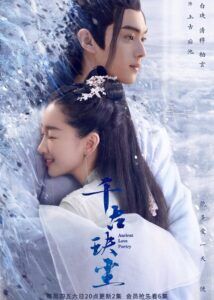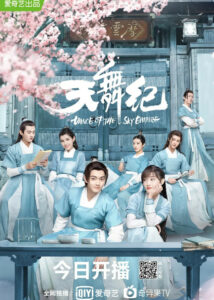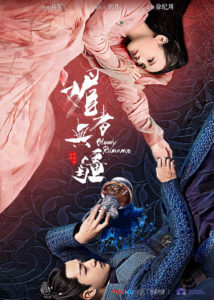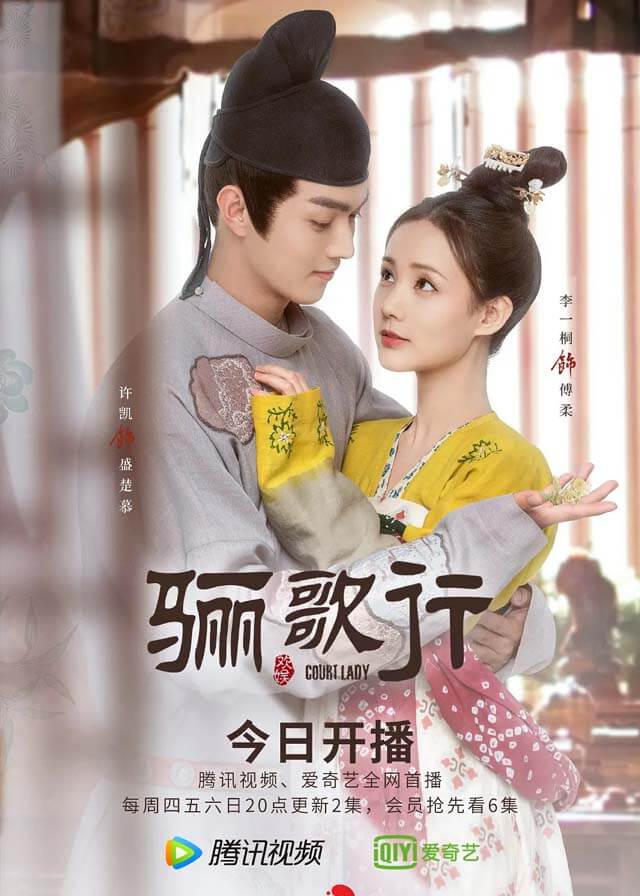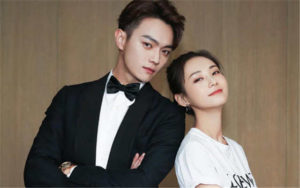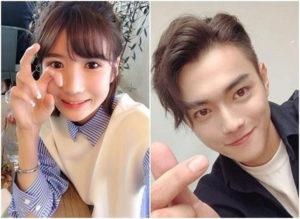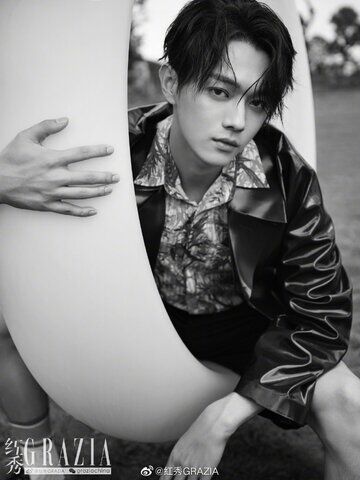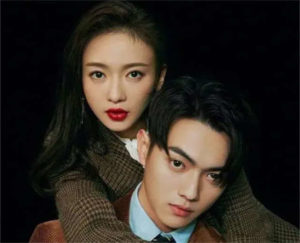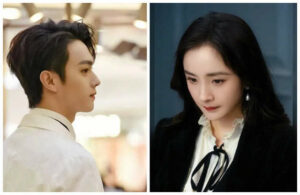Court Lady Episode 47 Recap
> Court Lady Recap
- 1
- 2
- 3
- 4
- 5
- 6
- 7
- 8
- 9
- 10
- 11
- 12
- 13
- 14
- 15
- 16
- 17
- 18
- 19
- 20
- 21
- 22
- 23
- 24
- 25
- 26
- 27
- 28
- 29
- 30
- 31
- 32
- 33
- 34
- 35
- 36
- 37
- 38
- 39
- 40
- 41
- 42
- 43
- 44
- 45
- 46
- 47
- 48
- 49
- 50
- 51
- 52
- 53
- 54
- 55
Sheng Chumu arrived at the East Palace, distressed to find Fu Rou imprisoned. He told Fu Rou that the East Palace had committed a grave mistake, and the Emperor would deal with it impartially. He expressed a desire to reconcile, assuring her there was nothing between him and Lian Yan'er. However, Fu Rou remained silent, her eyes subtly urging him to look at a nearby box. Confused, Sheng Chumu approached and discovered his younger brother, Sheng Chujun, lying dead inside.
Overwhelmed with grief, Sheng Chumu broke down, weeping uncontrollably. Fu Rou, heartbroken, tried to comfort him, but Sheng Chumu, driven by impulse, rushed out, intent on killing Sun Lingshu for revenge. Fu Rou quickly intervened, preventing him from acting rashly. She warned him that taking the law into his own hands would lead to prosecution by the Ministry of Punishment, reminding him of how Princess Consort Han was unjustly killed without a fair trial.
Sheng Chumu reluctantly relented, promising to seek justice after investigating the truth. Shortly after, driven by his desire for vengeance for Sheng Chujun, Sheng Chumu went to the prison to confront Sun Lingshu. However, he learned that Fu Rou had already transferred Sun Lingshu to detention within the palace. Enraged, Sheng Chumu rushed to the Bureau of Imperial Etiquette where Fu Rou was stationed.
Despite Fu Rou's efforts to dissuade him, Sheng Chumu misunderstood her intentions, accusing her of obstructing him solely to maintain her prestigious position as Supervising Palace Attendant. He questioned her sincerity towards him, demanding she step aside. Fu Rou steadfastly refused to move, even when Sheng Chumu held a knife to her throat. At that critical moment, Prince Han emerged from Sun Lingshu's quarters, lamenting that he had not personally avenged Princess Consort Han.
Soon after, a palace maid rushed out, reporting that Sun Lingshu had committed suicide. Hearing this, Sheng Chumu then left the scene with Prince Han. Meanwhile, Prince Liang, realizing the gravity of his situation, attempted to escape. He stole a horse and, ignoring his attendants' warnings to flee Chang'an, insisted on returning to Prince Liang Manor to take Lu Yingying with him. Upon arrival, he learned from a maid that Lu Yingying had already left with Yan Zifang.
Prince Liang was devastated. Soon after, pursuing soldiers, guided by Prince Liang’s prized pet falcon, Prince Ying, tracked him down. Prince Liang was captured and, upon seeing the falcon, accused Yan Zifang of being a villain with malicious intent from the start. Concurrently, Ma Haihu delivered Yan Zifang's letter to the Emperor at the Hot Spring Palace, revealing that the Crown Prince had been deluded by Prince Liang into plotting to kill Prince Han.
The Emperor was deeply disappointed in the Crown Prince. He recalled how the Grand Imperial Sire and the late Empress had repeatedly entrusted the Crown Prince to his care, and how he had bestowed the heavy responsibility of regent upon him, trusting him as the heir apparent. Despite this, the Crown Prince had disregarded all filial bonds and plotted against his own brother.
The Emperor, enraged, immediately ordered the invalidation of the Crown Prince's seal and commanded Generals Sun Wanli, He Sheng, and Hengwei General Fan Qishou to lead their forces to Chang'an and escort his carriage back to the capital.
Lu Yingying, having been led by Yan Zifang to a secluded house in the suburbs under the pretense of meeting Lu Qi, realized she had been deceived when Yan Zifang revealed that Lu Qi was unharmed and had already fled Chang'an, having been rescued by Yan Zifang himself. Yan Zifang then informed her that the Emperor knew about Prince Liang and the Crown Prince's ambush against Prince Han, and that Prince Liang would inevitably face imprisonment.
Despite this, Lu Yingying insisted on returning to Prince Liang. Yan Zifang questioned her loyalty, reminding her of Prince Liang's past abuses, the scars on her body, and her previous reluctance to consummate their marriage. He asserted that he only helped her to eliminate his enemy, Prince Liang.
Lu Yingying argued that she had since committed to being a dutiful wife, believing Prince Liang had shown remorse and learned to cherish her, and she refused to abandon him in his time of need. Fearing for her safety, Yan Zifang bound her, insisting that she would only be safe with him. Lu Yingying, however, declared her hatred for him. Elsewhere, Fu Tao brought Shan'er back to Fu Yin.
Fu Tao expressed his intent to avenge their mother's death, but Fu Yin pleaded with him to let go of revenge. She explained that her own quest for vengeance had turned her into a murderer, robbing her innocent son of both parents, and she did not wish the same fate for Fu Tao. She urged him to trust that Heaven would punish Duke Cai's family for their sins and that they should focus on living righteously. Fu Tao remained silent.
Upon the Emperor's return to the capital, Prince Han, accompanied by numerous officials, knelt outside Mingde Gate to welcome him. Seeing Prince Han unharmed, the Emperor was greatly relieved. Prince Han assured him that the Crown Prince had been placed in a safe location and that he had not harmed his brother, acknowledging their shared parentage. The Emperor was pleased by Prince Han's composure during the crisis and his consideration for his brother, ordering rewards for his loyalty and courage.
The Emperor then visited the Crown Prince, who appeared disoriented and sought death, only pleading for the safety of Sun Lingshu and Que'er. The Emperor was heartbroken and disappointed by the Crown Prince's continued lack of remorse. Later, sitting alone in the Imperial Garden, the Emperor was approached by Consort Yan, who invited him to her palace to rest. There, he encountered Prince Zhou, diligently writing essays to encourage farming.
The Emperor was impressed by Prince Zhou's dedication to the people and his avoidance of court intrigues, expressing a wish that his other sons were as principled. After hearing that the Crown Prince still showed humanity by caring for his wife and son, the Emperor ordered that no one should mistreat Crown Princess Consort and the Imperial Grandson, though their provisions would be reduced to that of a Princess Consort of a Commandery Prince.
Soon after, a eunuch reported that Sun Lingshu had died. He explained that Prince Han had surrounded the Bureau of Servitude, threatening to avenge Princess Consort Han, which had led Sun Lingshu to commit suicide out of despair. The Emperor was furious, scolding Cao Yangde for allowing Prince Han to barge into the Bureau of Servitude and force Sun Lingshu's death.
Consort Yan seized the opportunity to malign Fu Rou, claiming Fu Rou was present when Prince Han forced Sun Lingshu's death, did nothing to stop him, and ordered the news to be suppressed. The Emperor immediately summoned Fu Rou, having already questioned other palace staff. When Fu Rou arrived, the Emperor questioned her directly. Fu Rou openly admitted that Prince Han had intended to kill Sun Lingshu, citing his public lament that he had not personally avenged Princess Consort Han.
She explained that she had ordered palace staff to remain silent to protect the dignity of the imperial family and the Emperor's reputation. To substantiate her testimony, Fu Rou presented two written accounts of the incident, one kept in the Bureau of Imperial Etiquette and another previously delivered to Dowager Consort Wang.
Wei Song, sent by Dowager Consort Wang, confirmed that Fu Rou had taken measures to protect Sun Lingshu by transferring her to the Bureau of Servitude from an external prison due to concerns for her safety, despite Sun Lingshu having previously attempted to kill Fu Rou. The Emperor then asked why Fu Rou would protect someone who tried to harm her.
Fu Rou explained her belief that a guilty person should face judgment under Great Tang law publicly, rather than being secretly executed. Satisfied with her integrity and adherence to justice, the Emperor praised Fu Rou, acknowledging that the late Empress had not misjudged her.





